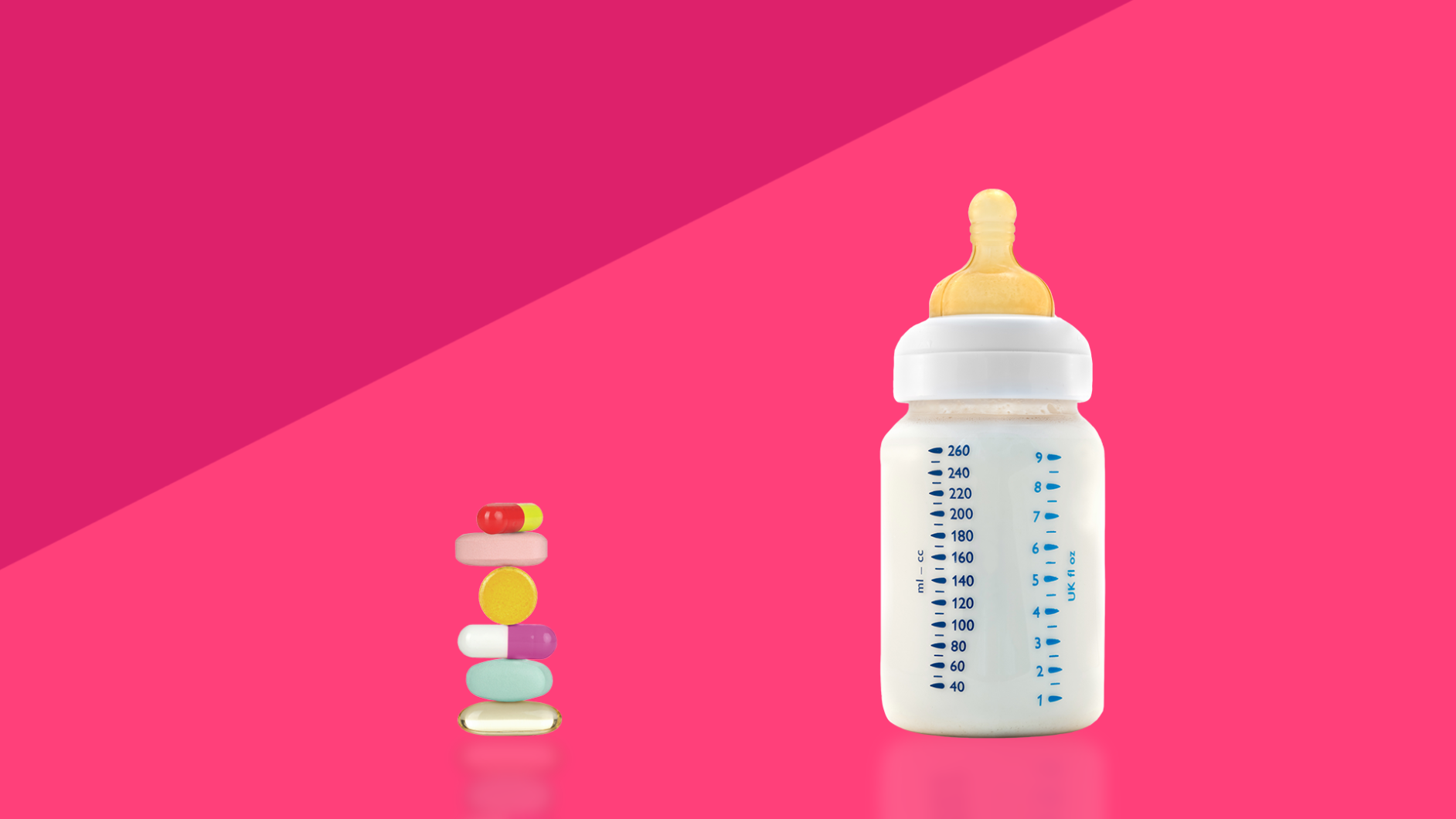Key takeaways
Nursing mothers experiencing symptoms of depression should seek immediate treatment, as untreated postpartum depression poses significant risks to both infant and maternal health, outweighing the risks of taking antidepressants while breastfeeding.
Most antidepressants are found at very low or undetectable levels in infant serum, with few observed side effects in infants, making it generally safe for breastfeeding mothers to use antidepressants under medical supervision.
Zoloft and Paxil are the best-studied antidepressants for breastfeeding moms. They are mostly or totally undetectable in the blood of the breastfeeding infant.
Sufficient rest and support for nursing mothers are crucial for managing depression symptoms and ensuring the well-being of both mother and baby, with partners and family encouraged to actively assist in caregiving to facilitate this.
This is part of a series on breastfeeding in support of National Breastfeeding Month (August). Find the full coverage here.
When breastfeeding moms need to treat any type of ailment, their first question is often, “How will this medicine affect my baby?” Nursing mothers are commonly cautioned that everything they put into their bodies will pass into their breast milk, so medications should be avoided whenever possible.
But when moms are battling depression, the first question should be, “How can I safely adjust my treatment plan during and after pregnancy?” It’s not uncommon for mothers to deprive themselves of some need in order to better support their children. But listen up, mamas, because this is important: Your health matters, too!
According to the American Psychological Association, as many as 1 in 7 new mothers experience postpartum depression. PPD could last for a few weeks or several months. If you were depressed before pregnancy, it can last for years. And it can be severely crippling, impacting your ability to take care of your baby and yourself. Depression is a serious mental health disorder that will not go away without proper treatment—sometimes that means taking antidepressants and breastfeeding.
Should breastfeeding mothers take antidepressants?
Nursing moms who are experiencing symptoms of depression should seek treatment immediately. If you are not already seeing a therapist or a psychiatrist, ask your OB-GYN or midwife for a referral. You don’t have to go through this alone.
In some cases, your provider might recommend therapy alone as a treatment for your depression. But if she thinks you need to take an antidepressant, try not to worry.
“All antidepressants are excreted into breast milk, but most are found at very low or undetectable levels in infant serum,” says Dr. Rebecca Berens, assistant professor of Family and Community Medicine at Baylor College of Medicine in Houston. “While infants should be monitored for behavior changes and weight gain if a mother is taking antidepressants, very few side effects in infants have been observed in studies. The risks to infant and maternal health of untreated postpartum depression are significant and far outweigh the risks of taking antidepressants while breastfeeding.”
The baby’s exposure to antidepressants is actually higher while in utero than through breast milk, says Dr. Jenelle Luk, the medical director and co-founder of Generation Next Fertility in New York. So women who were already being treated for depression during pregnancy can continue the same course of treatment while breastfeeding. “If the patient would like to change her treatment plan, she should consult with her healthcare provider as changing treatment can lead to relapse with worsening symptoms,” Dr. Luk says.
Whether it’s a new prescription or existing, your doctor should work with you to determine the best antidepressant for you. Some patients respond better to certain medications than others. According to Dr. Berens, Zoloft is the best-studied antidepressant among breastfeeding moms, and it is undetectable in the blood of the breastfeeding infant. Paxil is also undetectable in most cases. Your pharmacist is also a good resource if you have questions about your current treatment and its impact on your pregnancy and lactation.
That being said, it’s not a one-size-fits-all approach. “The best antidepressant to take is the one that best controls the mother’s symptoms while also taking into consideration the infant safety profile, so this decision must be individualized,” Dr. Berens says.
What else should nursing mothers consider when they are battling depression?
“Breastfeeding is often a powerful way for a new mother to bond with her infant, but in some cases breastfeeding difficulty may worsen symptoms of depression,” says Dr. Berens. “It is important for a mother to discuss any breastfeeding difficulties with her maternity care provider, primary care physician, or lactation consultant.”
Remember, you can’t take care of your baby if your own needs aren’t being met. It can seem impossible to rest when caring for a newborn, but nursing mothers absolutely need to get adequate sleep. It’s crucial to help your body physically recover from childbirth, and sleep is a protector against depression. It may help alleviate symptoms for moms battling depression.
“Partners and other family members of breastfeeding mothers can help ensure that a mother gets adequate rest by helping around the house during the day so that she can nap and taking the infant to her for overnight feeds then soothing the infant to sleep while the mother returns to sleep,” says Dr. Berens.
RELATED: Why support is crucial to breastfeeding mothers
If you are a new mother and you are experiencing symptoms of depression, it is important that you seek treatment immediately, regardless of your breastfeeding status. The same is true for other mood disorders and anxiety, which may also be treated with antidepressants. The treatment might include therapy, medication, or a combination of the two. Be sure to make your own mental health and well-being a priority, for both you and your baby.




